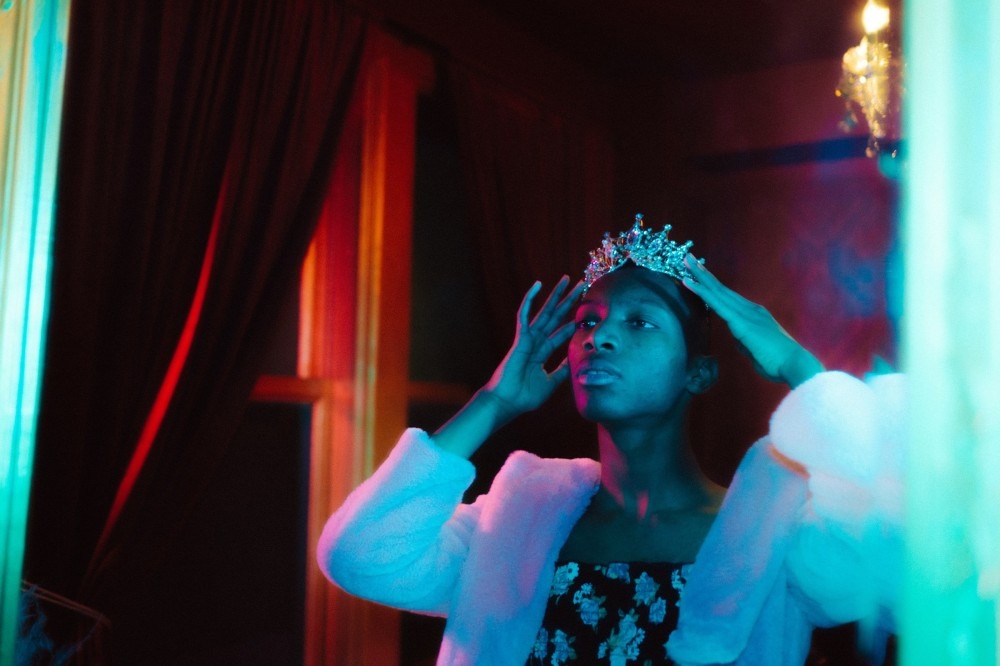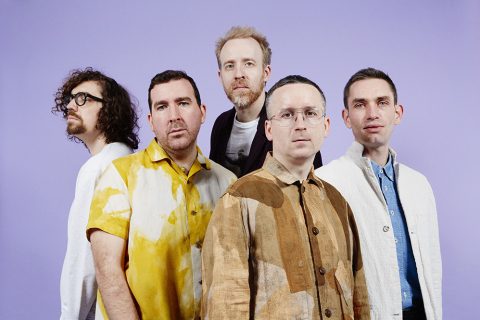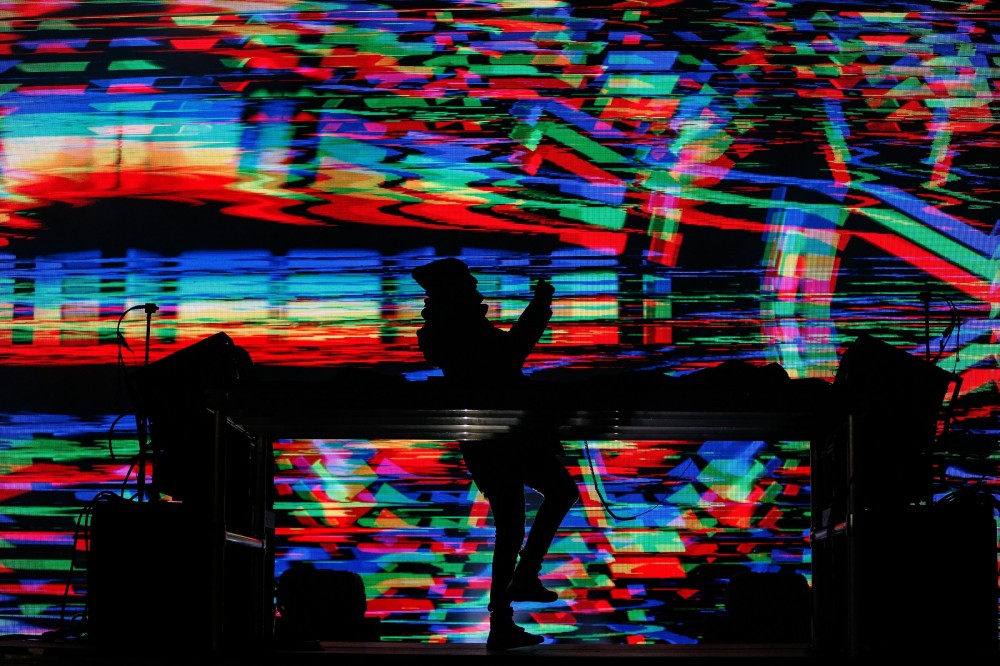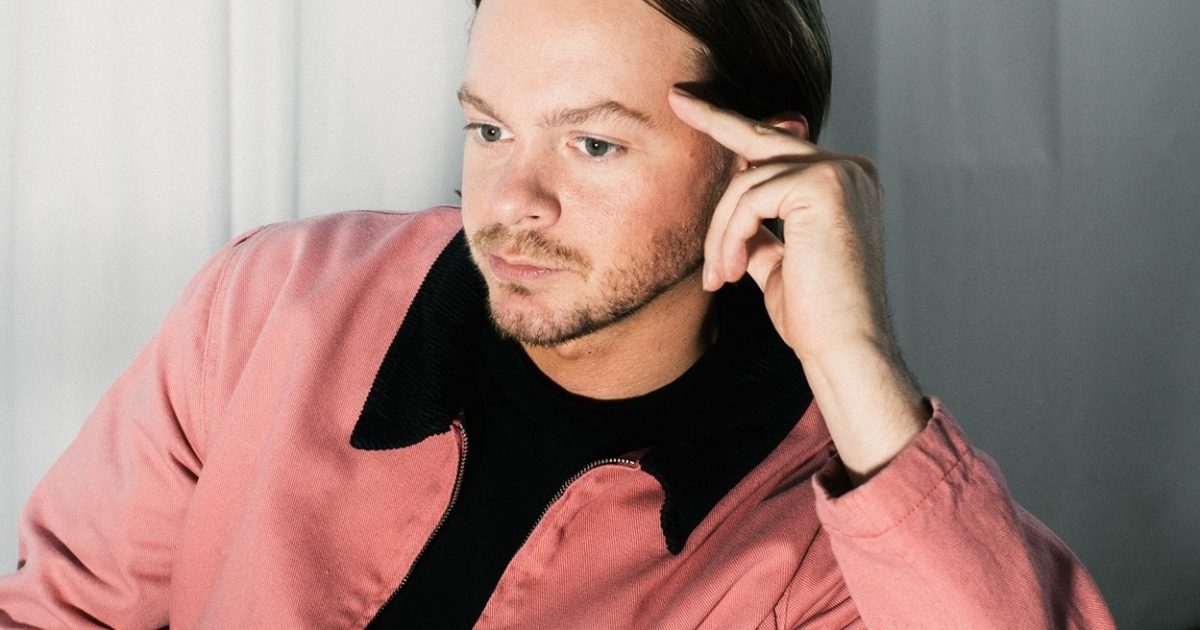
DJ Seinfeld: “Life isn’t perfect, so why should music be?”
Since his uprising as an orchestrator of dusty lo-fi club tracks and introspective house jams, Armand Jakobsson’s alter ego DJ Seinfeld has covered no end of sonic ground in just 6 years. His debut album ‘Time Spent Without U’ was an exercise in melancholic sample-heavy club tracks and acid lines marinated in tape distortion. It was a stunning dance record that both exorcised the woes of the then-heartbroken Jakobssen and spurred regular DJ rotation around the globe.
The 5 years since then have seen the Swedish producer continue to work diligently, founding his own very own imprint Young Ethics and introducing it with three EPs of new material, all while plugging away at remixes for the likes of Pendulum, Disclosure and Josh Wink. Doing away with the lo-fi aesthetic of his older tracks, the subsequent output brought a more polished sheen to his sound, echoing the sounds of trance, breakbeat, electro and garage. His latest full length album ‘Mirrors’ feels like a culmination of all these efforts so far and restored in high definition, with a greater focus on sound design and ambient flourishes. Amid his 2022 Australian tour, we sat down with DJ Seinfeld to discuss his creative process, the new live setup as well as the personal changes that shaped the album.
SR: For a bit of background, what got you into dance music?
DJS: Well, I came from a musical family. My dad was an opera singer, my mum was a music teacher, and my sister is now also an opera singer. There was always classical music around me when I was a kid, then in seventh grade I had a friend with a Mac computer who showed me Moby‘s ‘Play’ album, and I was just blown away by it. I played a lot of ice hockey at school and would just listen to what was on in the arena, which was generally pretty high energy dance music, stuff to get the adrenaline pumping.
It wasn’t until high school that I intentionally started listening to electronic music. Music like Burial, Legowelt, Pantha Du Prince and so on. Despite it being electronic, it was music that was very emotional to me in many different ways, and when you’re a teenager you feel everything a thousand times stronger. All that music kind of led me more into the underground side of dance music, and when I was older I’d go to clubs in Sweden and Scotland where I was studying. The only thing that hasn’t changed over all those years is that I’ve never been a sucker for lyrics. When I listen to music I process the whole track as one whole sonic piece with different tones and layers, I never pay attention to the words, and electronic music kind of caters to that in a way. Especially if it’s a really catchy vocal, I struggle to remember it or even really hear it. The human voice is just another instrument to me. I think good music should convey emotion with tone and arrangement rather than lyrics. I don’t like being told what I should feel! (laughs)
SR: Over the past 10 years or so, the whole idea of gaining popularity through a local music scene has kind of died out, and producers like yourself among many others have gained popularity through the internet. Were you part of a particular scene in Sweden or Scotland beforehand?
DGS: Not in a local sense, but it’s hard to define what a scene is nowadays with so much activity online. I know what a scene is in a traditional sense, but the whole ‘lo-fi’ thing was never a scene, it was kind of this internet fad that came and went. It was a movement that was really responding to how our generations were dealing with the lack of tactility in music, but there’s also this dialogue about meme and pop culture. When you throw all these things into the mix, eventually something will emerge that can be concretely defined and turned into its own genre, but just like with memes, the downfall is just around the corner, since the lifespan of a trend nowadays is like three months max.
SR: You’ve mentioned family matters as a key aspect of the album’s production and a more sober approach. Do you think this album marks a period of personal development for you?
DJS: I hope so. I wanted to mature in a way that set me free from the constraints of my previous work, and with the industry kind of shut down for the past two years, I thought it would be a good opportunity to come back as a totally different artist than before. I felt that enough time had passed between this record and the last one for people to not exactly know what to expect. It was a good opening for me to take risks with different styles that I wouldn’t have done before.
SR: Emotionally, ‘Mirrors’ is much more optimistic in tone than the last record, which had a general theme of longing and loss. Do you think you’re more content this time around?
DJS: I was feeling relatively balanced during the making of this album. I was ok when I made this album, but I wasn’t when I made the first album. I think the desperate way in which the first album was thrown together gave it a real sense of emotion. A lot of samples were sort of slapped in there that just fell into place and worked, that’s why it feels so much more raw, and it felt so good at the time to get that music out there. With the new album, there isn’t quite the same dramatic emotion, but it’s not for the worst, and I think you should never force any type of emotion onto a piece of work if you’re not feeling it at the time. I do miss it though because I love music that has an overt emotionality to it, and I’m trying to come back to that a bit.
SR: On the topic of samples, many of the vocal samples you pick out manage to say so much with so little. It’s amazing how much impact one simple phrase can add to the emotional context of a track. Do you spend a lot of time picking out samples or is it more intuitive?
DJS: Well back in the day, I’d scout YouTube for R&B acapellas, sampling people singing covers of pop songs just in their bedroom, a bit like what someone like Burial would do. Nowadays it’s become such a minefield for me because I have to think about the copyright and clearing samples. Even for a cover of a song, you have to check that with X amount of institutions, companies and record labels and it’s just this headache. Due to that, the excitement of sampling has kind of dissipated for me, and if I use a sample I have to get permission or re-use old ones.
SR: Often the imperfection of amateur vocal recordings adds a whole new emotional dimension to it as opposed to flawless studio recordings.
DJS: Yeah, I mean life’s not perfect, so why should music be perfect? Human error is what makes music special to us,
SR: A standout track for me is ‘I Feel Better’. The vocals repeat those words throughout the track, however, it’s directly contrasted with quite a sombre undertone. It seems to convey a feeling of recovery.
DJS: Yeah, you’re spot on actually. I wanted to have a track in there that was kind of a curveball and something a bit different, as well as a track that directly told the truth. I mean, explicitly speaking, I do feel better, and I’m not the same kind of person I was when I made the first record, but that vocal definitely has something haunting about it. I remember finding it from the stems of some EDM remix competition, and it was quite a commercial sounding track in its original form. I love re-contextualising things like that. The original track was super cheesy, but the isolated vocals just had something raw and sincere to them.
SR: You seem to have a clear enthusiasm for classic hardware. Do you have an old M1 or a 303 tucked away at home?
DJS: The only equipment I actually have is the stuff we’re using for the live show, which is a MIDI controller and a prophet synth, but I don’t work with that, it’s just a means of making the music possible to perform in a live setting. Any time I’m not touring they’re just locked up in a storage facility somewhere. I lot of my peer musicians are big into gear and began collecting more hardware after working in the box for so long, but I’m more interested in what you can do with software. I’m very used to working with the tools I know, and I’m quite particular about knowing how to get an idea out quickly, so I don’t want to spend months learning a new piece of equipment much. I just don’t have that time when touring.
SR: Take us through your new live setup.
DJS: Me and an engineer in London deconstructed the album and figured out a way of performing it live. The idea was that it would consist of most of the tracks on the new album, a few from the last album and some unreleased tracks. It’s all run through Ableton, which allows me to take the tracks apart live and perform alternate versions of them with different melodies. I’ve also been experimenting with generative software on an iPad that generates these metallic tones as I’m playing.
In Australia I played to much larger crowds than in the US, so I needed material that was a lot more punchy. There are a lot of dance edits and tracks I’ve made just to play out. There’s nothing worse than gathering a crowd that wants to dance and then just playing music you can’t dance to because I am still a dance act after all.
SR: How much performance takes place in the studio vs manual programming?
DJS: I would say ninety percent is directly programming MIDI. I usually have a melody in my head which I can just write out on the piano roll. It was quite difficult at first to get used to working like that, but now that I’ve been doing it for so long it’s become easy for me. I can play the melodies by hand as well, but since I don’t have a keyboard plugged into my laptop when I’m abroad, I don’t have that at my disposal.
SR: What’s the story behind the art direction of the new album?
DJS: It was done by a London-based artist named Rosie Rackham. I came across her work for the jazz label Blue Note which I really loved. It was like every piece of musical notation from the album was translated into this graphic shape. I thought it was amazing. It seemed really alien, and an almost hieroglyphic interpretation of the music.
I didn’t really have a whole lot of ideas for the art direction. On the previous releases on my own label I had this humanoid alien-like figure that expanded and contracted along with the music. With the album I thought it would be cool to keep that kind of motif going, but maybe give these characters more of a warmth, and perhaps they’re mirroring and responding to each other in some way. The art direction for ‘Mirrors’ definitely felt the most epic so far. I do think that if you want an album to stick around, you need something quite simple and effective.
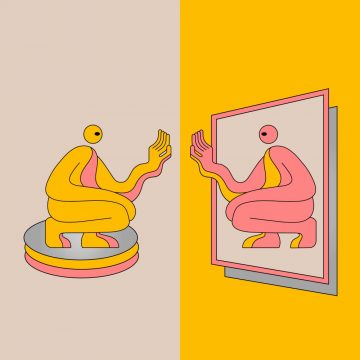
SR: Moving forward with your own label Young Ethics, will you be using this imprint primarily for your own output or will it become a platform for other artists as well?
DJS: That’s exactly what we’re doing this year, actually. We have a debut solo project from a musician named Sorenious Bonk, who has previously worked as a film score composer for things like Harry Potter and a bunch of Netflix shows. The whole process we used to sign him was a huge fluke, and we feel so lucky to have him with us. He has a really nice organic electronic sound which we can’t wait to introduce to the world.
We’re going to be pushing a lot of new artists on the label, and the only thing they really have in common is that I like their music. I’m super excited because a lot of these people are quite under the radar and haven’t got much of an audience yet, so it’ll be great to introduce these acts to the world and hopefully see them progress as better known acts. So yeah, there won’t be much from me on the label any time soon but there’ll be a lot of new artists for sure.
SR: What future aspirations do you have with your music?
DJS: I’m already developing so many new tracks in hotels as I’m touring, so I’ll see where those end up. I would love to try my hand at scoring a film soundtrack, I think that would be an interesting experiment after making beat-oriented music for so long. I would also like to produce for other people, writing music for pop acts and things like that. More on the horizon however, there’ll be a remix album of the songs from Mirrors.
DJ Seinfeld’s second album ‘Mirrors’ is out now on Ninja Tune.
